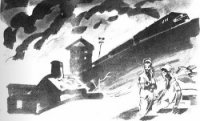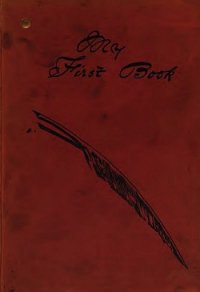Operation Nemesis: The Assassination Plot that Avenged the Armenian Genocide - Bogosian Eric (мир книг .txt) 📗
These men were the true bosses of the Ottoman Empire during World War I. “The Central Committee would remain until the end of World War I ten years later the centre of power in the Ottoman Empire.”26 The membership of the Central Committee had been secret, evolving over the years. Moderates had been forced out and replaced by ardent racist nationalists. Most histories of the Ottoman Empire during World War I describe the leadership as a “triumvirate” of Talat Pasha, Enver Pasha, and Djemal Pasha, but in fact the Ittihad had many guiding hands.
Mehmet Cavid organized the finances, including large infusions of gold from the Germans. The sociologist and poet Ziya Gokalp provided the Young Turks with a complex nationalist ideology replete with ideas such as “in reality there cannot be a common home and fatherland for different peoples.… The new civilization will be created by the Turkish race.”27 Generals Mustapha Kemal (Ataturk) and Kara Kemal provided military muscle. “The CUP functioned as a strict hierarchy, with the central committee at the top and the periphery totally subordinated to the center whenever it was within its control.”28
Though Enver and Djemal oversaw the military and were fully versed in the machinations of the central government, it was Talat Pasha, as minister of the interior, who ran the show. Talat was always at the center of things. Clever, strong-willed, and comfortable in his dealings with foreign diplomats, Talat was also a physically imposing man. United States ambassador Henry Morgenthau seemed almost in awe when he described him:
Physically he was a striking figure. His powerful frame, his huge, sweeping back and his rocky biceps emphasized that natural mental strength and forcefulness which made possible his career. In discussing matters, Talat liked to sit at his desk, with his shoulders drawn up, his head thrown back, and his wrists, twice the size of an ordinary man’s, planted firmly on the table.… Whenever I think of Talat now, I do not primarily recall his rollicking laugh, his uproarious enjoyment of a good story, the mighty stride with which he crossed the room, his fierceness, his determination, his remorselessness—[no], the whole life and nature of the man take form in those gigantic wrists.29
Like many Young Turk leaders, Talat was not ethnically Turkish; rather he was of Pomak descent, that is, native Bulgarian Muslim. He was born in 1874, the son of a civil servant. At the time of the Young Turk revolution, he had worked for the post office for ten years. As interior minister, he shared many traits with other leaders of the twentieth century who rose from humble backgrounds. Talat’s natural charisma, intelligence, and single-mindedness combined to give birth to a ruthless political pragmatist. Always careful to make strategic moves that enhanced his power, he cooperated with his fellow Central Committee members while never relinquishing control. Unlike his fellow committee members, Talat had neither military training nor an advanced education. Though many of his cohorts were urbane, Talat was flexible and canny, which made him well suited to international politics. He was highly respected by the Kaiser, who in 1917 conferred on him the Prussian Order of the Black Eagle, “one of the highest German decorations… seldom conferred on non-Germans.”30
Though Enver Pasha lacked Talat’s Machiavellian talent for political engagement, his charisma arose in part from his sheer impetuosity. He was well known as a hero to the people and was considered Talat’s equal in the Ottoman Empire. Enver was the most prominent military leader in Turkey and, after visiting Germany a few years before the onset of World War I, began to pattern his style of leadership after that of the Prussian military. He had confirmed his reputation as a courageous and resourceful general in the Second Balkan War. (Ironically, he wasn’t actually present during the battle for which he is best known.) Brash and cocky, he was famous for his mustache with its upturned twisted ends.
Enver was not only a celebrated general and a snappy dresser; he was also married to the Princess Emine Naciye, making him a member of the royal family. This direct connection to the caliphate lent him an aura of Islamic significance. At the end of the war and later, this special status would give Enver license to lead an “Army of Islam” in Azerbaijan and Central Asia. In contrast to Talat’s meat-and-potatoes strongman image, Enver appealed to the public with his dashing exploits and confrontational style. Talat, ever the sly politician, had no problem with Enver’s overconfidence, realizing that it actually made his greatest rival for the top leadership position more vulnerable. Nonetheless, Enver, like Talat, would enthusiastically embrace the decision to exterminate the Armenians.
Djemal Pasha, the third member of the triumvirate, was also a military leader. Unlike Enver, he was a Francophile who had trained with the French, and so he lacked Enver’s more severe Prussian style. Djemal led the navy and was in charge of the southern flank of the empire, including Syria, the Sinai, and Mesopotamia. Also, as commander of the Syrian region, he oversaw the vast numbers of deportees flooding into the desert around the oasis town of Der Zor and other concentration camps.
The man who later would lead the “Special Organization,” the secret paramilitary tasked with some of the most gruesome killings of the genocide, was Dr. Behaeddin Shakir, a former personal physician to the Ottoman crown prince. Shakir kept close tabs on the deportation efforts as he motored from city to city in a large black car, giving personal instructions to commanders and CUP secretaries. In this respect Shakir provided the link between Talat in Constantinople and the local valis, or governors, who controlled each vilayet. Shakir, like many of the other leading lights in the CUP, was the son of refugees (muhacirs) from Bulgaria. As such he had been witness to the vicious Christian attacks on the Bulgarian Muslim populations. By the time World War I began, Shakir had no compunctions about using similar tactics to clear the Armenians out of Turkish Anatolia.
An early indication of the CUP’s callous disregard for life presaged its later approach to what it saw as “the Armenian problem.” Tens of thousands of stray dogs ran loose on the streets of Constantinople, defecating in the public parks and snapping at people, as packs of wild dogs virtually took over neighborhoods. In 1910, two years after first coming to power, the CUP decided to solve the problem of Constantinople’s dogs with an eye toward improving the party’s popularity and public image. The dogs, unlike more intractable difficulties, were a problem with an easy solution.
Dogcatchers were dispatched, and the dogs of Constantinople were captured one by one and locked in cages. The cages packed with barking canines were then shipped off to a deserted island, Hayirsiz Ada, one of the Princes’ Islands lying just off the coast, a short boat ride from the city and a favorite tourist destination today. The cages were brought ashore and opened, and some eighty thousand dogs were set loose on the rocky island, where, lacking food, the strong cannibalized the weak until those that remained simply starved to death. Supposedly, ships crossing the Sea of Marmara could hear their plaintive howls across the dark waters. Their treatment received so much attention that the Turkish Society for the Prevention of Cruelty to Animals was founded by one Alice Washburn Manning, an American who came to Turkey specifically in response to the plight of the dogs, as well as the horses that had been wounded during the war.31
The CUP’s approach to the stray dogs was simple and straightforward. A problem had presented itself, and an efficient solution had been found. It’s hard not to see a parallel with the fate of the Armenians a mere five years later. Talat and his colleagues were pragmatic and decisive. Without Talat’s cold focus on “the problem” and its cold-blooded “answer,” the deportation program would never have happened.




